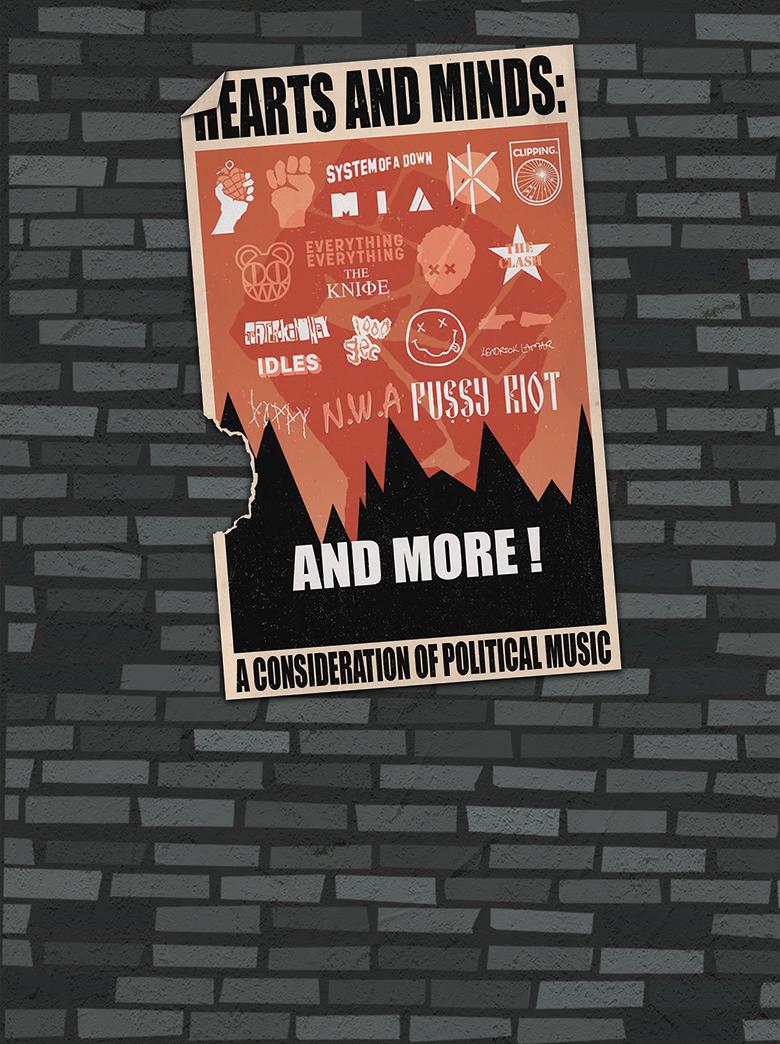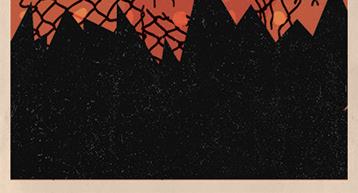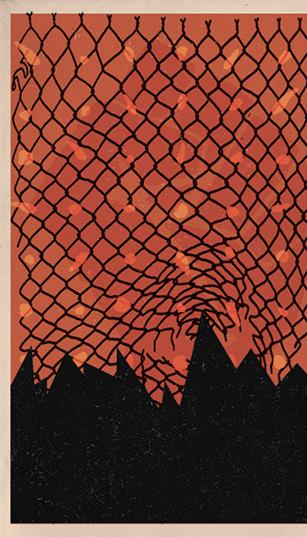
9 minute read
Hearts and Minds: A Consideration of Political Music
When it comes to political art, there’s an easy trap to fall into: thinking that because it has a distinct “real world” intent, it’s more meaningful than other art. This applies across all mediums, but it’s especially noticeable with music. After all, so much of popular music is relatively shallow, simply meant to be enjoyed for its danceability or exciting energy. This isn’t just a critique of genres I personally dislike: much of metal or punk music is entirely just frenetic toughguy theatrics meant for head-banging. All of this is to say that I’ve personally been guilty of this line of thinking, which is steeped in a kind of juvenile elitism.
Only embracing music that has a good “purpose” is a deeply joyless worldview, one that ignores the inherent politics of every work, which can often go unspoken. For example, jazz often has no lyrics, but especially in its early development, was a fairly revolutionary genre: primarily created by Black musicians subject to discrimination and segregation, rejecting the regimentation and organization of traditional western music. That’s very threatening to a certain kind of person, which is exactly why Henry Ford sank a lot of money into promoting square-dancing across the nation while jazz was ascendant.
Advertisement


Regardless of the inherent or intended politics of an artist’s work though, it’s a flawed perspective to only seek out music with supposed political meaning. Politics is about the struggle for power with others, through formalized or informal means. But there’s far more to life than external struggle: often the most important conflicts we face are internal, the need for joy and meaning in what can be a confusing and cold reality. That’s what makes art important in and of itself, rather than as a tool for propagandizing. To quote Soviet filmmaker Andrei Tarkovsky, “the allotted function of art is not, as is often assumed, to put across ideas, to propagate thoughts, to serve as an example. The aim of art is to prepare a person for death, to plough and harrow his soul, rendering it capable of turning to good”.
Such language is certainly dramatic, and a tad overwrought, but the point (at least for me) rings true: art that’s only meant to change minds--or reinforce existing perspectives--is largely misguided. It usually won’t have that effect anyway: changing people requires prolonged exposure, as well as usually a noticeable shift in their material conditions. Instead, the power of great art (specifically music in this case) is that it has the potential to make you a more complete individual, through the experiences of joy, fear, elation, and other emotions. That note of “turning to good,” is essential: there are certain kinds of music that once you hear it, no matter how critically “good” or “bad” it is, it almost makes you unable to understand how people could be cruel to each other. Finding music that truly touches your personal conception of beauty, that speaks to the needs deep in your psyche, is about as close as someone can find to reaching (the actual Buddhist concept) Nirvana.
This conception of music is, of course, complicated and inherently contradictory. For example, The Clash is an unsubtle political band clearly trying to convey an ideological message but their song “London Calling,” as goofy and overplayed as it is, for me represents a fundamentally important moment of personal growth, separate from any political intent. Its lyrics of joyful swagger in what seems like the apocalypse have helped me overpower feelings of doom, of fearing what it means to live in what seems like a collapsing world. In this sense, it clearly served Tarkovsky’s vision of art: it’s a silly song, but it helped me push through my fears, solidifying myself into a more complete version of the self I resemble now.
There are further complications: what that hardening and improvement of the self looks like for different people will vary wildly. Music (and other art) hasn’t prevented people from harming one another. National anthems, those most political of songs, have certainly done little to cause the cessation of conflict. Horrible people have loved music and art with a passion.
However, I don’t believe these appreciations inherently violate Tarkovsky’s thesis, of art as separate from the transmittal of ideology.
What makes someone love a national anthem isn’t the actual musical content, it’s what it represents, as a sort of manifestation of their nationalist ideal. The classical music that white supremacists love isn’t appreciated because it actually speaks to their deep existential dread or personal struggles: it’s because it emerged from locations and people that those groups approve of and serves as a piece of historical “evidence” for their false superiority. There’s also an element of enjoyment by hateful individuals that frankly comes from failures of listening. I’m reminded of people angrily posting on Twitter at Tom Morello of Rage Against The Machine, claiming they used to love RATM, but then suddenly realizing what “some of those who work forces / are the same that burn crosses” actually means. I’d caution against saying hateful appreciation of music is meaningless,





as it can be used as a tool to enculturate impressionable people into discriminatory groups. The British National Front tried to use punk rock as a recruitment tool and wasn’t unsuccessful in doing so.
In fact, I’d say the young and impressionable are essentially the only “successful” audience for political music, both for good and bad. It’s a tradition going back to time immemorial: teenagers, as they come closer to functional adulthood, start to form their own views of the world. They pontificate about its various injustices and cruelties and either accept the norms they were enculturated in or splinter off, changing from the expected views of friends and family. Children rarely have real “politics,” but by the time one reaches the driving age, you start to have actual opinions. Since at least the 1960s (if not earlier), this has been tied with discovering artists who share these new and challenging views, both vindicating the youth’s changes and encouraging further development. It’s easy to laugh at some of the preachy and straightforward lyrics of early-2000s punk rock, but for a young kid living through the beginning of the War on Terror, that kind of music provided an escape from the nationalistic drumbeat and austerity economics of the era.
Nonetheless, political music--specifically left-wing work--has been wildly co-opted and pacified, so that it can be enjoyed by most people without an ounce of cognitive dissonance. Firstly, there’s the fundamental contradiction about being a working musician who’s trying to promote views challenging the status quo: you must do so through channels that make money if you want any chance of common people actually hearing your music. This was a notable critique leveled against Rage Against the Machine with their distinct anti-capitalist and antiauthority themes. Guitarist Tom Morello gave a fairly conventional response to this line of questioning: “When you live in capitalistic society, the currency of the dissemination of information goes through capitalistic channels ... We’re not interested in preaching to just the converted.” Nonetheless, it’s fair to see the entire project as inherently defanged by the realities of the music industry. When Nirvana became the #1 band in America, it represented the fact that musical counterculture was effectively captured, left to kick and scream against a stabilized hegemony of power.
One also can’t forget, despite the glorification of early protest music, that even those earlier songs and artists have been effectively sanitized. Almost all of the work was already coming from major labels, preventing anything too challenging from reaching the air. Even the work that we can see as lyrically critical is made
palatable: “Fortunate Son,” a song about the rich getting out of the draft, is played at Trump rallies. Springsteen’s “Born in the USA” was played during the Reagan campaign. Examples like these are countless and don’t help the argument that political music is actually successful at making anything close to a fundamental change. A further critique, one that is brutally simple: those same hippies, Gen X punks, and millennial deadbeats all ended up getting jobs as bank tellers, landlords, and defense industry lobbyists anyway.
In a sense, one of the greatest risks in pursuing music as an avenue of political expression is that it silos off those sentiments as mere

culture, rather than grounding them in the substance of practice. Much of the fury seen in modern conservative movements is against the relative dominance of left-wing or emancipatory views in modern music (and other media), and that’s been the case since at least the aforementioned development of jazz. This anger is natural and understandable, but those same conservative movements maintain a decisive hold on several levers of actual power, while they fail to achieve cultural relevance. Of course, people want to feel seen, they want to feel appreciated and represented, so that lack of cultural capital is a painful thing for some. Meanwhile, certain strains of liberals struggle with the counter-side of the issue: their favorite artists have said Black lives matter, or they listen to punk bands spit on Reagan’s legacy, but at the same time, their actual material power in political institutions slips away by the day. Global warming keeps getting worse, automation is racing to put us out of work, and it feels like nobody actually has a say in where this ship steers before it hits the iceberg.
Multiple elements can be true at once: it’s good that there are artists out there writing music that challenges harmful attitudes and misdeeds, but it can also be a disappointing reality that cultural and material power are two different things.
Furthermore, it bears repeating that ultimately the role of art should be for the improvement of the individual, to make life more worth living. Perhaps a more noble purpose would be to motivate a collective towards a greater cause or to do beneficial things for one another. But as long as music remains a product, and as long as we societally remain as fragmented individuals, it will fail to do so. In this predicament, perhaps this idea of art as the “harrower of the soul” and a simple tool for enjoyment is a compromise, a solution for our complicated times, a way to feel joy in our own lonely way. Either way: love what you listen to, and if you can, work to make a better world, starting with yourself.
■Bryan Grady (Political Science)










